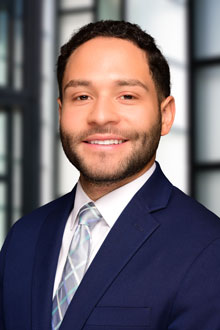(July 2023) - New York Partner Karen L. Campbell, with Associates Dean Pillarella and Zac Candelaria, secured summary judgment in favor of a school district in a matter where the plaintiff alleged to have been sexually abused by a teacher within the district. In Jane Doe v. MacFarland, the New York Supreme Court, Rockland County, awarded the district summary judgment and dismissal, agreeing with Lewis Brisbois’ arguments that the district lacked prior notice of the teacher’s alleged sexual propensities.
The district’s arguments hinged largely on the fact that the in loco parentis doctrine could not apply because the plaintiff was not a student of the school district but, rather, a student of another school district who frequented the defendant’s property to meet with her alleged abuser. The doctrine provides that those who undertake the physical custody and control of children have a heightened or special duty to act as reasonably prudent parents, which, in cases of inaction, is not contingent upon prior notice of sexual propensities. As such, the district’s only duty to the plaintiff was as a possessor of real property, which is contingent upon prior notice or “past similar occurrences.” Because prior notice was lacking, dismissal was appropriate.
In an attempt to demonstrate prior notice, the plaintiff largely pointed to her deposition testimony that school district employees previously witnessed her alleged abuser take her into his office and lock the door behind him. In reply, Dean argued that this testimony was speculative and, in any event, insufficient to amount to prior notice of sexual propensities as a matter of law. He pointed to a co-employee’s testimony that the plaintiff’s presence on school grounds was viewed as innocuous because it was understood that she assisted her alleged abuser with the operation of an independent enterprise. He further argued that the plaintiff’s resort to this testimony conflated the in loco parentis duty with the duty of a mere property owner. While the former permits recovery for damages sustained as a result of “circumstances created by inaction,” the latter requires notice of pedophilic or sexual propensities in the sex abuse context. As no in loco parentis duty could apply, this testimony was insufficient to raise a triable issue of fact because, even if true, it was not inherently criminal nor sexual and otherwise explained.
The trial court agreed in full, finding “there is nothing in the record to support the assertion that the District knew or should have known of [the alleged abuser’s] propensity to engage in criminal conduct.” The decision illustrates that the in loco parentis doctrine and its “heightened” duty of care is not automatically applicable in every case involving a child. Where physical custody and control are lacking, the defendant’s duty, if any, is the lesser duty of ordinary care, contingent upon prior notice.
The decision can be found at index number 034675/2019, doc. no. 83.


